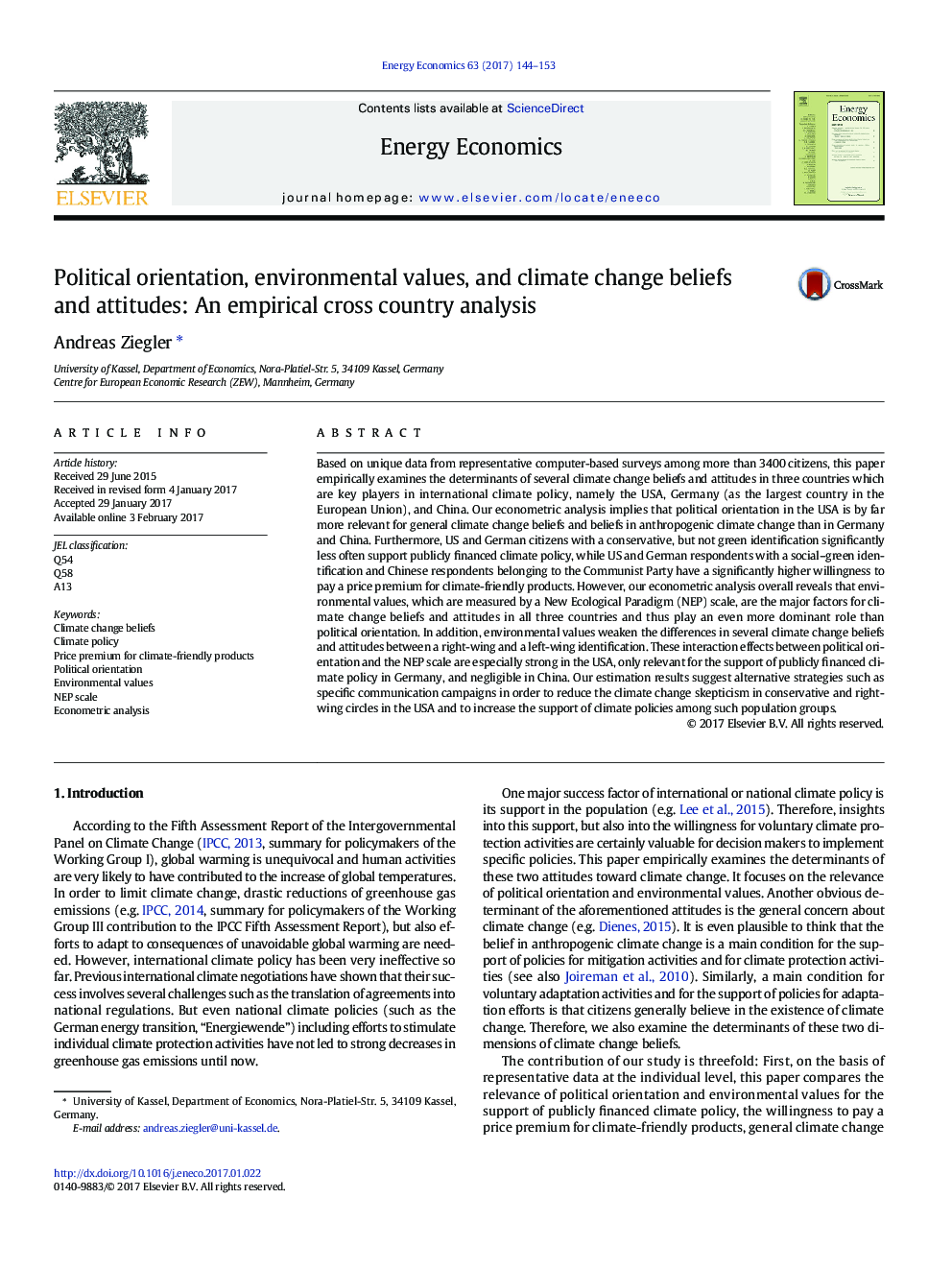| کد مقاله | کد نشریه | سال انتشار | مقاله انگلیسی | نسخه تمام متن |
|---|---|---|---|---|
| 5063753 | 1476701 | 2017 | 10 صفحه PDF | دانلود رایگان |
- Econometric analysis of determinants of climate change beliefs and attitudes
- Political orientation in the USA is by far more relevant than in Germany and China.
- Environmental values, measured by NEP scale, are the major factors.
- Interaction effects between NEP scale and political orientation, especially in the USA
Based on unique data from representative computer-based surveys among more than 3400 citizens, this paper empirically examines the determinants of several climate change beliefs and attitudes in three countries which are key players in international climate policy, namely the USA, Germany (as the largest country in the European Union), and China. Our econometric analysis implies that political orientation in the USA is by far more relevant for general climate change beliefs and beliefs in anthropogenic climate change than in Germany and China. Furthermore, US and German citizens with a conservative, but not green identification significantly less often support publicly financed climate policy, while US and German respondents with a social-green identification and Chinese respondents belonging to the Communist Party have a significantly higher willingness to pay a price premium for climate-friendly products. However, our econometric analysis overall reveals that environmental values, which are measured by a New Ecological Paradigm (NEP) scale, are the major factors for climate change beliefs and attitudes in all three countries and thus play an even more dominant role than political orientation. In addition, environmental values weaken the differences in several climate change beliefs and attitudes between a right-wing and a left-wing identification. These interaction effects between political orientation and the NEP scale are especially strong in the USA, only relevant for the support of publicly financed climate policy in Germany, and negligible in China. Our estimation results suggest alternative strategies such as specific communication campaigns in order to reduce the climate change skepticism in conservative and right-wing circles in the USA and to increase the support of climate policies among such population groups.
Journal: Energy Economics - Volume 63, March 2017, Pages 144-153
